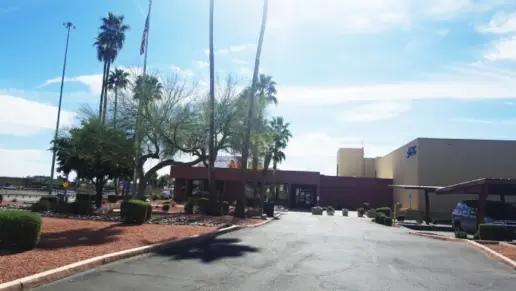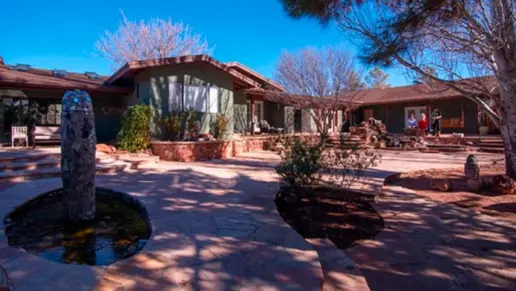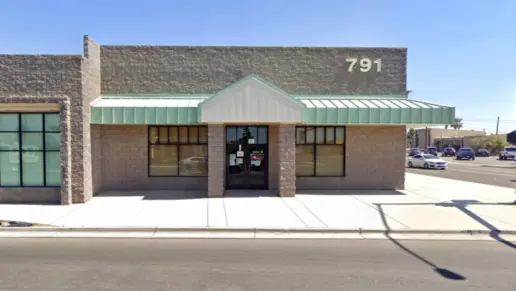About CODAC Health, Recovery & Wellness – Substance Use Treatment & Medication Assisted Treatment
CODAC has been providing integrated healthcare for individuals and families in Southern Arizona for up to 50 years. They operate an outpatient opioid recovery facility in Tucson, Arizona. This facility serves adults over 18 who struggle with opioid dependency. Whether it’s fentanyl or prescription pain medication they'll help you break free from dependency and work toward lasting recovery.
They even treat pregnant and postpartum women with opioid dependency. The facility is known for their quality and individualized treatment. This is made possible by their expert team of care professionals including physicians, therapists and counselors. Recovery coaches and peer support specialists are also involved. These specialists work together to deliver a “whole person” treatment that addresses the client’s physical, mental and emotional needs.
The facility is CARF accredited. This validates their commitment to the highest standard of care delivery. It’s also great that they’re open 24/7. This means you can access treatment at your convenience. They accept Arizona’s Medicaid and various commercial insurance plans. Grants are available if you’re uninsured. Their core specialty is medication assisted treatment. This uses FDA approved medicine and counseling to treat opioid addiction.
They may use methadone or suboxone to manage withdrawal. It all depends on your unique condition. These medicines reduce withdrawal symptoms and curb cravings. This allows you to undergo individual and group counseling for lasting recovery. Multiple group sessions are available. This includes addiction education, relapse prevention and life skills development. Their Aftercare services may involve ongoing meetings with recovery coaches, peer support specialists and 12 step support groups.
They may also connect you to community resources to access housing assistance and job opportunities. Comments from past clients reflect an overall positive experience.
Latest Reviews
Rehab Score
Gallery
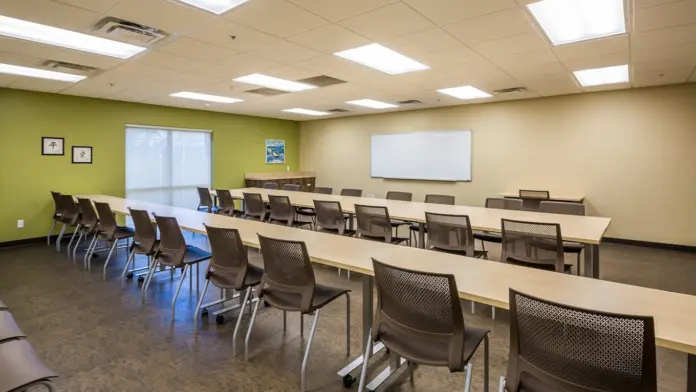
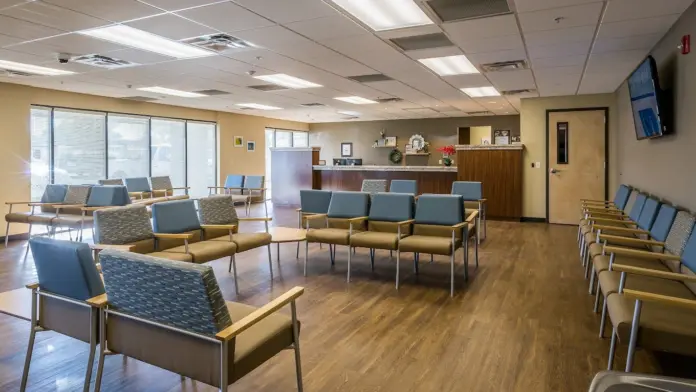
Location
Accepted Insurance
Other Forms of Payment
Private insurance refers to any kind of healthcare coverage that isn't from the state or federal government. This includes individual and family plans offered by an employer or purchased from the Insurance Marketplace. Every plan will have different requirements and out of pocket costs so be sure to get the full details before you start treatment.
Self-pay involves paying for treatment out of your own pocket. You can use savings or credit, get a personal loan, or receive help from family and friends to fund your treatment. If you don't have insurance or your insurance plan doesn't cover a specific program, self-pay can help ensure you still get the care you need.
Medicare is a federal program that provides health insurance for those 65 and older. It also serves people under 65 with chronic and disabling health challenges. To use Medicare for addiction treatment you need to find a program that accepts Medicare and is in network with your plan. Out of pocket costs and preauthorization requirements vary, so always check with your provider.
Medicaid is a state based program that helps lower-income individuals and families pay for healthcare. Medicaid covers addiction treatment so those enrolled can use their coverage to pay for rehab. When a program accepts Medicaid the client often pays very little or nothing out of their own pocket.
Military members, veterans, and eligible dependents have access to specific insurance programs that help them get the care they need. TRICARE and VA insurance can help you access low cost or no cost addiction and mental health treatment. Programs that accept military insurance often have targeted treatment focused on the unique challenges military members, veterans, and their families face.
Addiction Treatments
Levels of Care
Treatments
Mental health rehabs focus on helping individuals recover from mental illnesses like bipolar disorder, clinical depression, anxiety disorders, schizophrenia, and more. Mental health professionals at these facilities are trained to understand and treat mental health issues, both in individual and group settings.
Opioid rehabs specialize in supporting those recovering from opioid addiction. They treat those suffering from addiction to illegal opioids like heroin, as well as prescription drugs like oxycodone. These centers typically combine both physical as well as mental and emotional support to help stop addiction. Physical support often includes medical detox and subsequent medical support (including medication), and mental support includes in-depth therapy to address the underlying causes of addiction.
Substance rehabs focus on helping individuals recover from substance abuse, including alcohol and drug addiction (both illegal and prescription drugs). They often include the opportunity to engage in both individual as well as group therapy.
Programs



Clinical Services
Group therapy is any therapeutic work that happens in a group (not one-on-one). There are a number of different group therapy modalities, including support groups, experiential therapy, psycho-education, and more. Group therapy involves treatment as well as processing interaction between group members.
In individual therapy, a patient meets one-on-one with a trained psychologist or counselor. Therapy is a pivotal part of effective substance abuse treatment, as it often covers root causes of addiction, including challenges faced by the patient in their social, family, and work/school life.
Trauma therapy focuses on helping you understand and manage emotional and physical responses to past trauma. Using therapeutic interventions, you learn to reframe the experience. This helps reduce your anxiety and gives you greater control over your life.
Residents of Arizona who are experiencing relationship problems may benefit from couples therapy. This form of psychotherapy helps couples express their feelings, resolve conflicts, and increase intimacy and affection.
Research clearly demonstrates that recovery is far more successful and sustainable when loved ones like family members participate in rehab and substance abuse treatment. Genetic factors may be at play when it comes to drug and alcohol addiction, as well as mental health issues. Family dynamics often play a critical role in addiction triggers, and if properly educated, family members can be a strong source of support when it comes to rehabilitation.
Amenities
-
Residential Setting
-
Private Rooms
Accreditations

The Commission on Accreditation of Rehabilitation Facilities (CARF) is a non-profit organization that specifically accredits rehab organizations. Founded in 1966, CARF's, mission is to help service providers like rehab facilities maintain high standards of care.
CARF Accreditation: Yes
Contact Information
380 E. Fort Lowell Rd.
Tucson, AZ 85705






